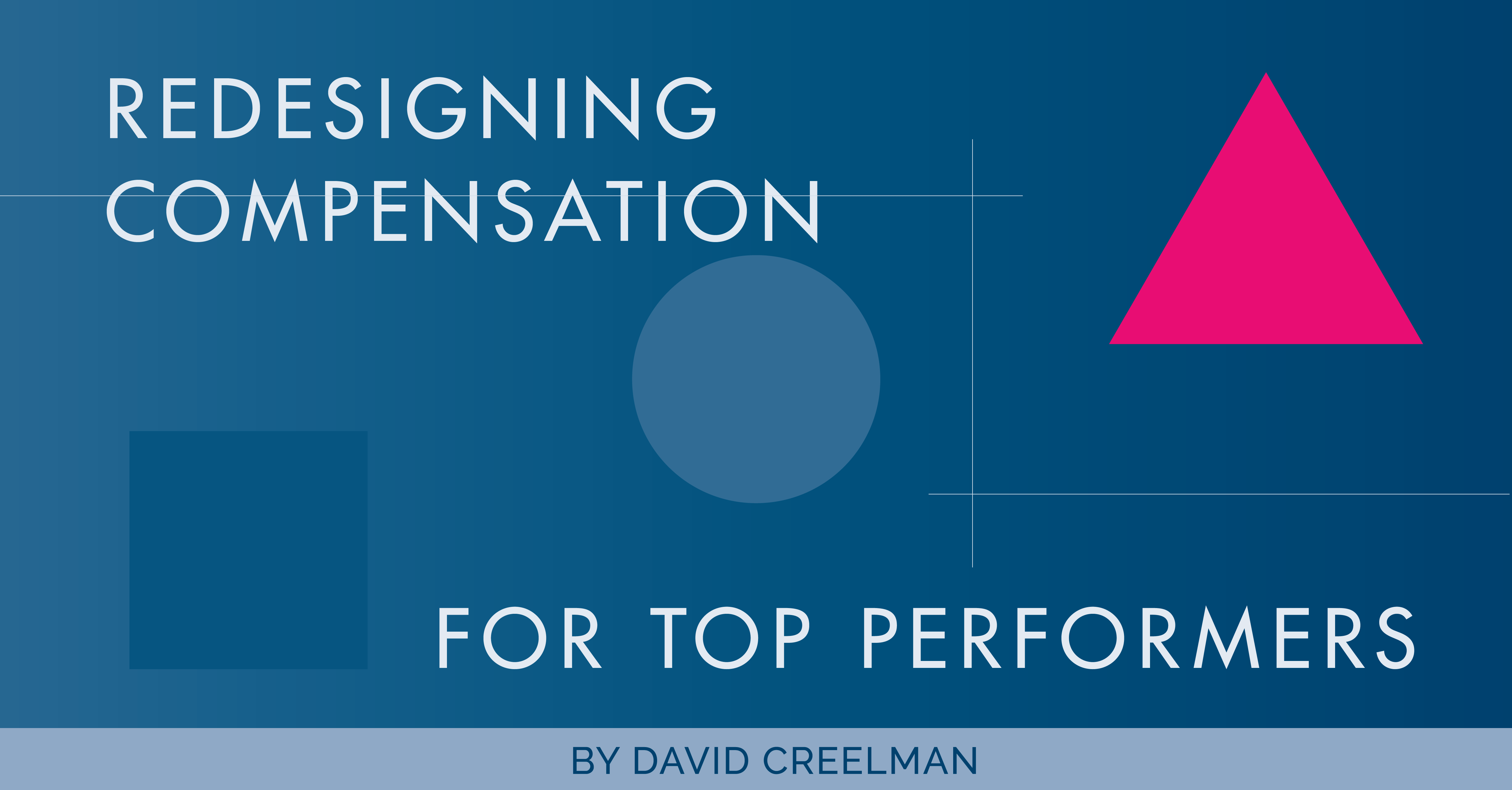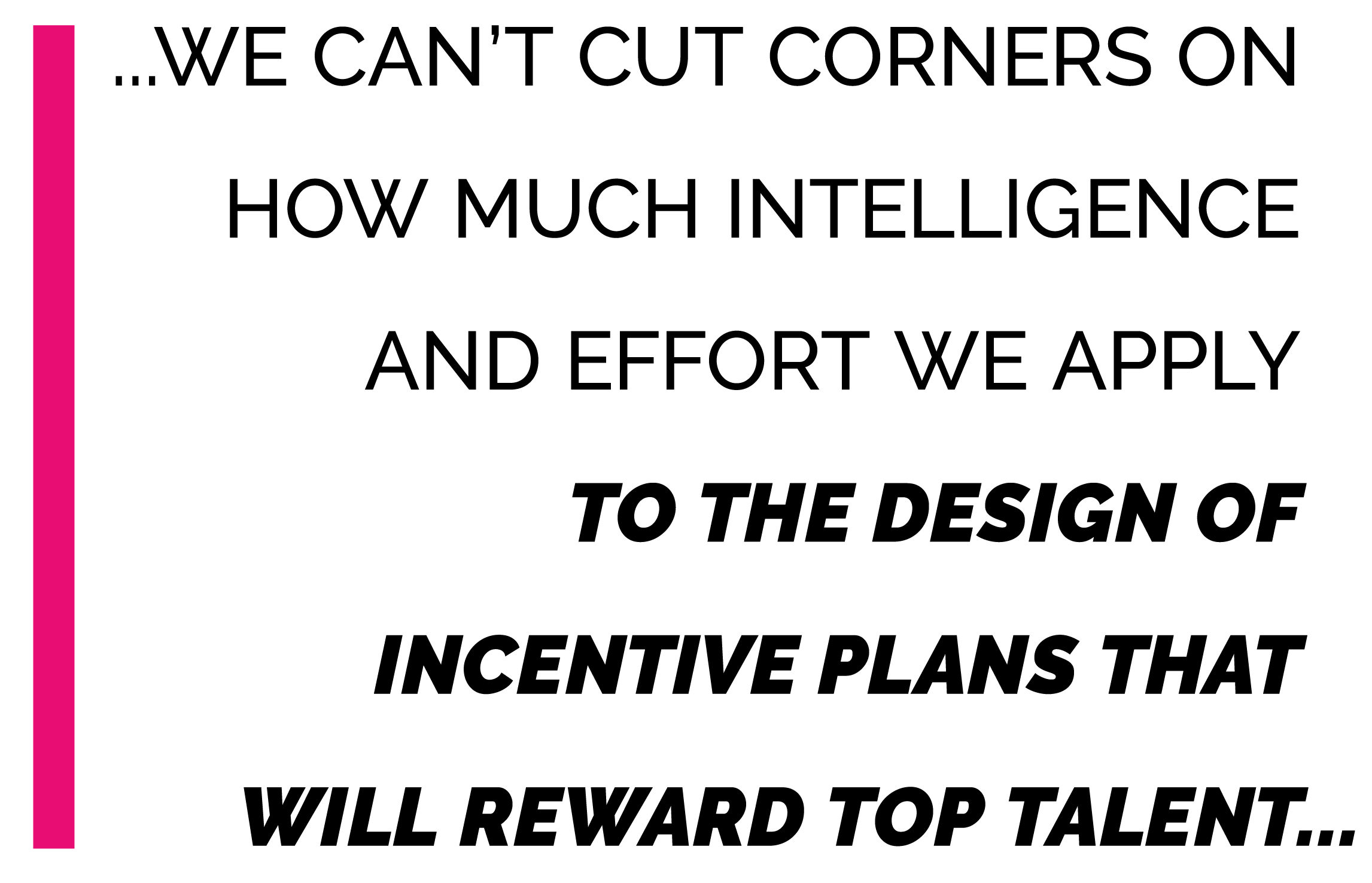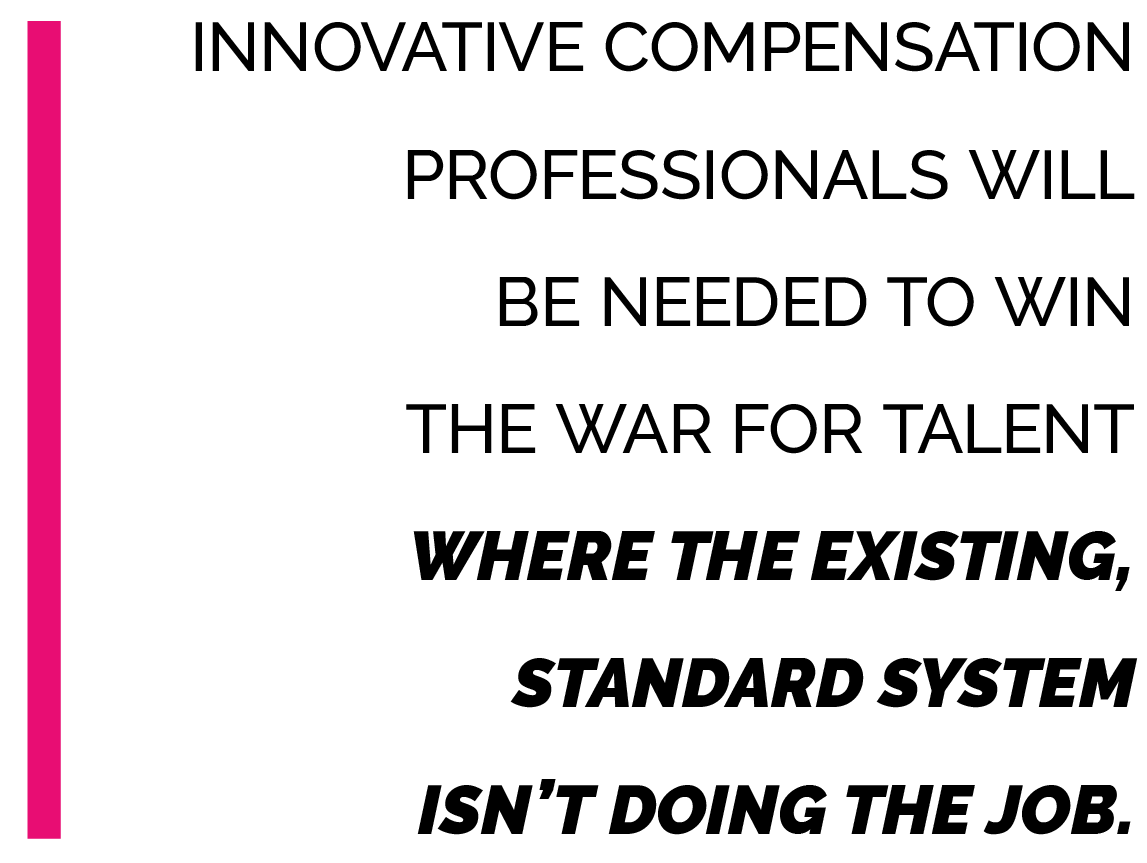
This is the second article in an ongoing series by David Creelman about redesigning compensation planning to acquire and retain top performers. To catch up on our discussion, you can read the first article by clicking here.
In our previous blog, we talked about identifying pivotal jobs where it made sense to adopt special compensation arrangements. Another area where you’ll want to win the war for talent is in attracting, retaining, and motivating top performers. This involves a lot more employees than just those in pivotal roles, so not only do you need an effective compensation scheme, you also need one you can implement at scale. The key tool here is redesigning compensation through variable pay (incentives, commissions, bonuses), which allows you to reward top performers without upsetting the whole compensation plan.
Don’t standard compensation plans already reward high performance? They do, but often not enough to have a real impact. Managers sometimes ask why they have the budget authority to spend $10k on equipment upgrades without anyone blinking an eye, yet are forbidden from giving the same amount in bonus compensation to a top performer whom they can’t afford to lose. There is a good reason why compensation professionals are so strict about pay structures. If you upgrade a machine, the other machines don’t care. However, if you give one person a bonus, you’ll face demands from other employees for the same treatment.
Variable pay isn’t new, so why do managers still struggle to get the pay they need to reward top performers? There are two main reasons:
- It is hard to design appropriate incentive schemes
- It is hard to administer multiple incentive schemes
Let’s look at each of these issues as they relate to redesigning compensation.
Designing an appropriate incentive scheme
There are endless variations one can make in a performance scheme, but typically they revolve around three elements:
- First, an element that reflects the overall business performance. Essentially, this means that if the business isn’t doing well, you don’t pay big bonuses when you can’t afford them.
- Secondly, an element that reflects unit performance. Particularly in a large organization, the performance of the overall business may seem fairly remote to an individual.
- Finally, there is the element of individual performance. This is the most difficult part.
The element of individual performance involves setting appropriate targets. This is rarely easy and never perfect. To do it right you need a partnership between an incentive compensation specialist and the direct manager. The incentive compensation specialist will have seen where incentives go right and also know the different ways they can go wrong. The direct manager understands the job and their people and will know what qualities differentiate their top performers.

The takeaway on this is that we can’t cut corners on how much intelligence and effort we apply to the design of incentive plans that will reward top talent in a way that aligns with business performance and strategy. If a company is new at this, then it should roll out an incentive program a step at a time, redesigning compensation in areas where attracting, retaining, and motivating top talent is most crucial.
Administering incentive schemes
You know how to do an incentive calculation, right? You just whip up a spreadsheet in Excel. That will work perfectly if you just have a handful of people. However, if you have a large number of people, then we all know how managing those spreadsheets can get out of control. You should look at vendors who offer solutions that will help you manage the administration.
The takeaway here is not to shoot yourself in the foot by designing a scheme that becomes a nightmare for you to administer. Make sure you’ve thought through the potential headaches of administration and found an appropriate solution before redesigning your compensation plan.

Conclusion
In many ways, compensation is the toughest area in HR. You need a locked-down system that keeps pay levels reasonable relative to the market and creates outcomes that are internally perceived as fair. However, if the pay system is too rigid, then you won’t win the war for pivotal talent (those jobs that have an outsized impact on the execution of strategy) or the war for top talent (those people whose performance is exceptional).
Generally, compensation professionals know how to create a locked-down system that delivers acceptable outcomes for the mass of jobs. Innovative compensation professionals will be needed to win the war for the talent where the existing, standard system isn’t doing the job.
It’s not a simple matter to create programs for pivotal and top talent, but it has such a high payoff that it’s worth investing the intelligence and effort to do so. ⬤

